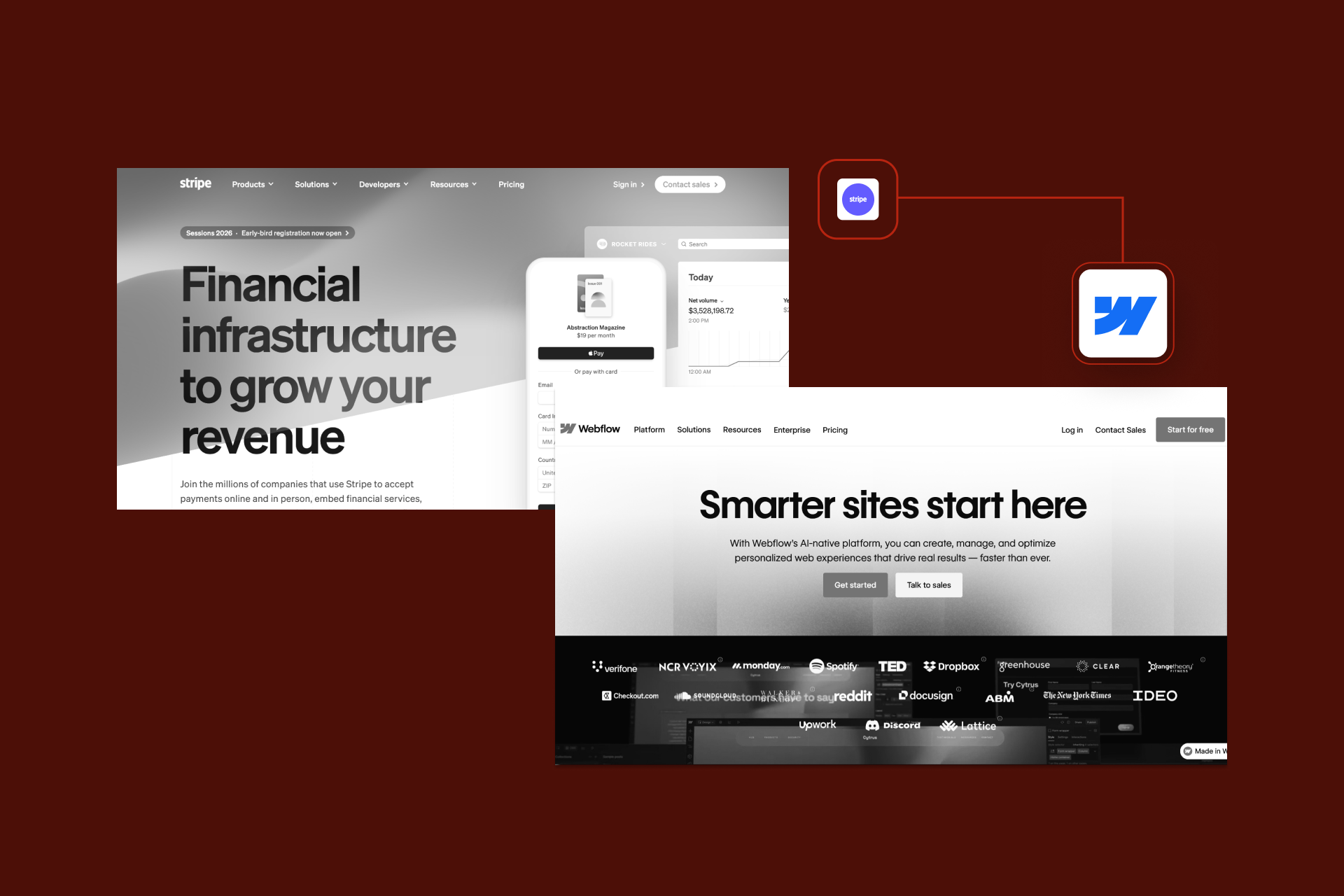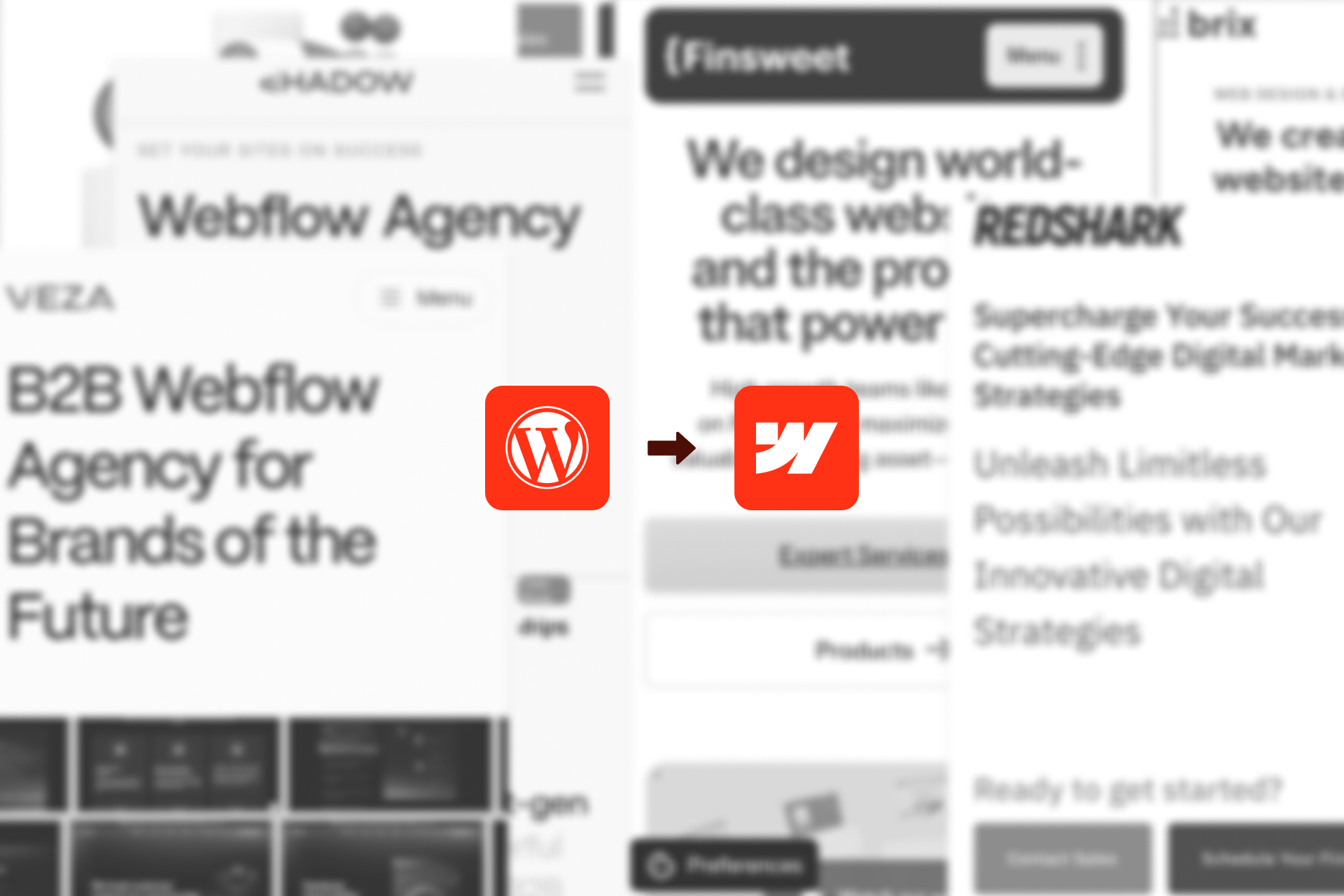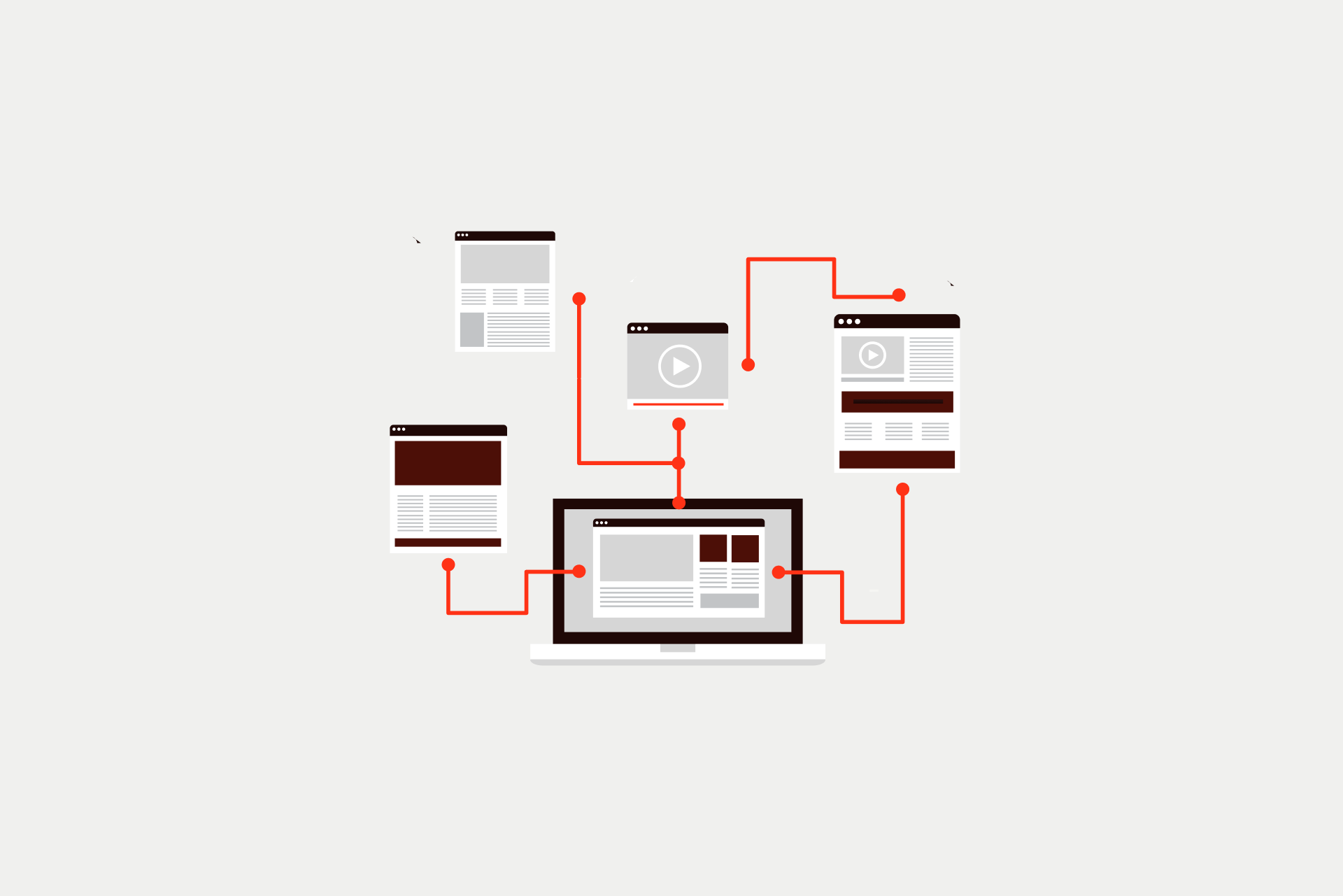10 Questions to Ask Before Hiring an SEO Agency


Let's Build Your Webflow Website!
Partner with experts who understand your vision. Let’s create a converting user experience and build your website for future growth.
10 Key Questions to Ask an SEO Agency Before You Hire Them
SEO is a long term investment, so hiring a Webflow agency for SEO means one thing - long lasting partnership that has to work seamlessly. Here, we don’t talk only about the budget. We talk about trust.
With the right partner by your side you can climb the search rankings and survive in the world where changes happen almost daily. The wrong one? A few missteps in a Webflow migration like improper 301 redirect mapping, broken structured data implementation, or mishandled JavaScript rendering, and you're looking at lost traffic, lost leads, and a potentially costly technical debt that requires significant development resources to resolve.
That’s why asking the right questions before you sign the contract with your agency is crucial.
Why It’s Important to Ask the Right SEO Questions
If you're opting for a dev-heavy SEO project or a Webflow migration, due diligence isn’t optional, and being honest, not every agency knows how to balance design and development with crawlable, performance-optimized builds.
The key is in details, so clean migrations, structured content models, and smart technical decisions aren’t negotiable. They can make or break your online presence.
Knowing what to ask, and look for can help you here, that’s why we made this guide. It arms you with the right questions to separate the pros from the pretenders.
Don’t Sign That SEO Contract Yet - Ask These 10 Questions First

1. Can You Walk Me Through Your SEO Process?
This isn't about getting a textbook answer; it's about seeing if an agency truly weaves SEO into every step of your Webflow project, rather than just tacking it on at the end. Understanding their process is key because it shows you how deeply they think and if they're actually aiming for your business goals.
- Getting to Know You: This makes sure their SEO strategy is built on solid ground, aiming for real leads and sales, not just website visitors who don't stick around. It also shows they consider how new things, like AI in search, might affect your visibility.
- Planning Your Site's Structure: A well-organized site is super important for both Google's robots (which "crawl" your site) and for your visitors. It helps your site get found and establishes you as an expert in your field.
- Prepping Each Page: This proactive approach means all your content is optimized from the very beginning, making it much smoother and more effective to build in Webflow.
- Getting Noticed in Search Results: Schema markup helps search engines truly grasp what your content is about, potentially leading to those eye-catching "rich snippets" that get more people to click on your site!
- Creating Great Content: Google increasingly rewards content that's genuinely helpful and comes from a trustworthy source. An agency focused on E-E-A-T means your content will be believable and resonate with both people and search engines, building real trust instead of just keyword stuffing.
- Making the Site Technically Sound: Flawless technical setup encompasses critical elements like proper robots.txt configuration, XML sitemap optimization, structured data validation, Core Web Vitals optimization, and ensuring JavaScript-rendered content is properly crawlable. With Webflow's hosted infrastructure, agencies should leverage its CDN capabilities while implementing custom domain configurations, SSL certificate management, and performance monitoring through both Webflow's native tools and external APM solutions.
- Building Your Online Reputation: High-quality links from respected websites are crucial for building your site's overall "authority," which directly helps you rank higher and get more organic traffic.
- Tracking, Reporting, & Adjusting: SEO isn't a one-and-done thing. You need an agency that constantly monitors your site's performance, does regular check-ups, and makes data-driven adjustments to ensure continued growth and adaptation to Google's ever-changing rules.
2. What Tools Do You Use and Why?
This question helps you understand how sophisticated and thoughtful they are. Don't just listen for a list of names; ask why they use each one. This shows their deep understanding and whether they have the right arsenal to handle tough SEO challenges effectively.
- All-in-One Powerhouses (Semrush or Ahrefs): These are the big, comprehensive platforms for finding keywords, checking out competitors, auditing backlinks (links from other sites to yours), technical SEO, and content marketing. Their rapidly integrating AI features are also key for understanding how AI reads and interprets content, helping you prepare for the future of search.
- Direct from Google (Google Search Console - GSC): This is absolutely essential. It's Google's direct line to your website and it's the ultimate health check and performance report directly from the source.
- Content Optimization Specialists (Frase.io, Surfer SEO, or Clearscope): As search becomes more conversational and AI-driven, simply stuffing keywords won't work anymore. These tools use AI to figure out what Google expects to see in top-ranking content for a specific search: related terms, common questions, topics, and overall depth.
3. How Do You Ensure a Smooth and Risk-Free Webflow Migration?
This is a make-or-break question for any Webflow project. Website migrations are famous for SEO screw-ups if not handled with extreme care. Asking this shows you their experience and methods for keeping your hard-earned SEO value intact and preventing disastrous drops in traffic.
- 301 Redirects: Losing link power means losing the "vote" value from all those hard-earned backlinks, directly hurting your rankings. This requires comprehensive URL auditing, redirect chain analysis to prevent multiple hops, and implementation of server-side redirects rather than client-side alternatives.
- Controlling What Google Sees: Properly controlling staging environments (making sure they aren't indexed), careful phased launches, immediately submitting your sitemap, and using Google Search Console's URL Inspection Tool ensures Google efficiently indexes your new Webflow site. This avoids costly "duplicate content" penalties and indexing headaches.
- Keeping Your Page Info Intact: Metadata is crucial for getting clicks from search results and giving context to search engines. Losing or messing it up can severely impact how visible you are and whether users click, even if your content is great.
- Pre- and Post-Launch Checks (QA): A detailed, documented plan for the migration with thorough quality checks minimizes stress and the chance of losing rankings and traffic, which directly affects your bottom line. The best stress relief is a plan you can truly trust.
4. Can You Show Me Results from Similar Projects?
Don't just take their word for it. This question helps you find out if the agency has real, proven experience doing Webflow migrations or complex technical SEO for clients with similar development needs.
- Case Studies with Before & After Numbers: Specific examples show they can deliver real, measurable results and handle the unique challenges of your type of project, giving you confidence in their abilities.
- Examples of Webflow Performance Optimization: This confirms their technical know-how within the Webflow platform, showing they can use its strengths for speed and performance, which is increasingly vital for both rankings and user experience.
- Client Testimonials: Look for feedback from past clients who specifically praise their technical SEO skills, how smoothly they handled migrations, and their clear communication.

5. What’s Your Approach to Performance and Site Speed?
Forget generic link-building talks. Today, how fast and smooth your site is, is SEO. Your site's speed, responsiveness, and how steady things appear visually (Core Web Vitals) are critical ranking factors. Asking this gauges their expertise in truly optimizing these, which directly impacts how users experience your site and where you rank on Google.
- Focusing on User Experience, Not Just the Score: While scores are important signals, a site that feels fast, responsive, and visually stable will always win in terms of user happiness, lower bounce rates (people leaving quickly), and ultimately, more conversions.
- Making the Main Content Load Fast: LCP is a key measure of how fast your site seems to load. Optimizing it directly affects how quickly people see the important stuff on your page, greatly reducing the chance they'll leave before your content even appears.
- Preventing Annoying Layout Shifts: High CLS is incredibly annoying for users, leading to accidental clicks and a poor experience. An agency that prioritizes CLS ensures a stable, professional, and trustworthy user experience, making your site feel polished.
- Ensuring Quick Responses to Clicks: How do they make sure your site responds quickly when someone clicks or taps something? This often means reducing the amount of work your browser has to do and carefully checking third-party scripts, which are often the biggest culprit here, so their check-up process is crucial.
- Using Webflow's Strengths: Webflow's static site generation, global CDN distribution, and automatic image optimization provide inherent performance advantages. Expert agencies leverage Webflow's component-based architecture for efficient CSS delivery, utilize its hosting infrastructure's HTTP/2 and Brotli compression, and implement strategic lazy loading for dynamic content. They should also understand Webflow's CMS API limitations and plan for headless implementations when dynamic content requirements exceed platform constraints.
6. How Will You Adapt Your Strategy to Our Setup and Workflow?
A good SEO agency won't try to force a square peg into a round hole. They should fit in with how you develop websites, what CMS (like Webflow) you use, and your internal systems. Asking this ensures they'll be a true partner, not just an outside vendor, seamlessly adding SEO into your existing operations.
- Initial Check-Up & Gap Analysis: This initial check helps them spot existing SEO wins and pinpoint any roadblocks or missing pieces in your current process, leading to a custom strategy that fits your unique setup.
- Where SEO Fits In: SEO shouldn't be a separate chore. An integrated approach ensures that every step of your Webflow project considers SEO, preventing costly reworks later and maximizing efficiency.
- Training & Guides: Empowering your internal team with SEO knowledge means they can naturally build best practices into their daily work, making your overall SEO efforts more sustainable and effective in the long run.
- Working with Your Tools: Integration with your preferred tools ensures smooth communication, clear task assignments, and accountability, reducing friction and improving overall project efficiency.
7. How Will You Communicate Progress and Report Technical SEO Fixes?
Transparency and clear, straightforward communication are super important. This question ensures you'll get easy-to-understand updates that focus on the impact, not just confusing terms, allowing you to track progress and understand the real value of their work.
- Progress Reports: You need to see how SEO efforts are actually helping your bottom line, not just "vanity metrics." Clear, regular reports with visuals help you understand the value and make informed decisions.
- Documenting Technical Fixes: This level of detail ensures technical issues are properly handled, tracked, and verifiable, giving you confidence that critical site health elements are being managed expertly.
- Talking to Your Developers: Effective communication with your development team (whether in-house or external) is vital for quickly and accurately implementing technical SEO suggestions, preventing misunderstandings and ensuring smooth collaboration.
8. Do You Follow Google’s Guidelines and Stay Up to Date?
This isn't a trick question; it's a basic test of their honesty and long-term vision. The only acceptable answer is a loud and clear "Yes, absolutely." Then, listen for why they prioritize this, as it directly affects the safety and long-term success of your SEO investment.
- Avoiding Penalties: Using "black hat" (shady) tactics that go against guidelines is simply not worth the risk for sustainable growth; it can lead to a complete loss of visibility and trust.
- Aligning with User Needs (The Heart of SEO): Following their guidelines means you're building a site that genuinely serves your audience, which naturally aligns with Google's goals, making your SEO efforts more effective and resilient.
- Future-Proofing: Chasing shortcuts is a losing game. An approach that follows guidelines means your site is less likely to be badly affected by future updates, ensuring long-term stability and growth. Ask how they stay updated (official Google channels, reputable SEO news sites, industry events).
9. What Happens After the Project Launches? (Ownership, QA, and Support)
Going live is just the beginning for SEO. This question helps you understand their plan for after launch and ensures your SEO efforts continue, protecting your investment and encouraging ongoing growth.
- Immediate Post-Launch Monitoring (First 2-4 Weeks): Implement comprehensive monitoring through automated alerting systems that track Core Web Vitals changes, crawl error spikes, and ranking fluctuations. This should include uptime monitoring, performance regression detection, and integration with incident management systems. For Webflow sites, monitor form submission functionality, CMS collection performance, and any custom code deployment impacts through both synthetic and real user monitoring (RUM) solutions.
- Ongoing Optimization & Growth (Long-Term): SEO isn't a "set it and forget it" task. You need a partner committed to long-term visibility and growth in organic search, adapting to market changes and algorithm updates to ensure your site continues to climb.
- Turning Visitors into Customers (Conversion Rate Optimization - CRO): SEO gets people to your site; CRO makes them take action. An agency that considers CRO understands the entire journey and aims to turn visitors into leads or sales, maximizing your return on investment.
- Ownership and Support: A clear understanding of ownership and ongoing support ensures you stay in control of your digital assets and have continued help for any SEO needs after the launch.
10. What Will You Need From Us to Succeed?
A great SEO agency won't promise magic without your help. SEO is a team effort. Asking this helps you understand your role in the partnership and ensures both sides agree on the resources and access needed for success, preventing roadblocks and misunderstandings.
- Access: Expect them to ask for full verified access to Google Search Console (GSC) and Google Analytics 4 (GA4). Crucially for Webflow, they'll need editor and admin access to your Webflow project(s).
- Information & Details: The more information you provide, the more accurately they can tailor their strategy to your specific business needs and integrate SEO with your wider marketing plans.
- Teamwork & Communication: SEO success depends on a true partnership. A willingness from both your agency and the client to be open about challenges and work together towards solutions is vital for long-term success.
Bonus Tip: Trust Your Gut
After asking all these smart questions, take a moment to listen to your instincts. If something feels off - too vague, too salesy, too cheap, or promises that sound too good to be true - it probably is. A confident, trustworthy agency will be transparent, pragmatic, and genuinely interested in your long-term success.
The Best SEO Agencies Welcome These Questions
Don't be afraid to ask tough questions. A truly great SEO agency won’t be scared off; in fact, they’ll appreciate your diligence. It shows you're serious about your business, and it helps both sides align expectations from the very start.
Ready to ensure a risk-free SEO migration and unlock your full online potential? Book a discovery call with Shadow Digital today and let's discuss how we can make your next SEO project a resounding success.
FAQs About Hiring an SEO Agency
How much does SEO cost?
SEO pricing varies from a few hundred dollars/month for basic local SEO to several thousand for complex strategies. Prioritize value and ROI over the cheapest option.
When will we see results?
Expect minor gains in 2–3 months, with major improvements typically in 6 to 12 months. Avoid agencies promising instant results.
Niche vs. full-service agency?
For Webflow, a niche SEO agency usually offers better integration and expertise. Full-service is fine, just ensure they have Webflow experience.
How long does a Webflow migration take?
A few weeks for small sites; several months for large or complex ones. A proper audit will define the timeline.
Will rankings drop during migration?
Slight, temporary dips are normal. With careful planning (redirects, indexing, monitoring), drops can be minimized.
Already using another CMS?
No issue. A quality agency can audit and migrate your site to Webflow without losing SEO equity.
Will my Webflow site perform as well?
Yes, likely better. Webflow is fast and SEO-friendly. With expert help, you can often exceed your old site's performance.



